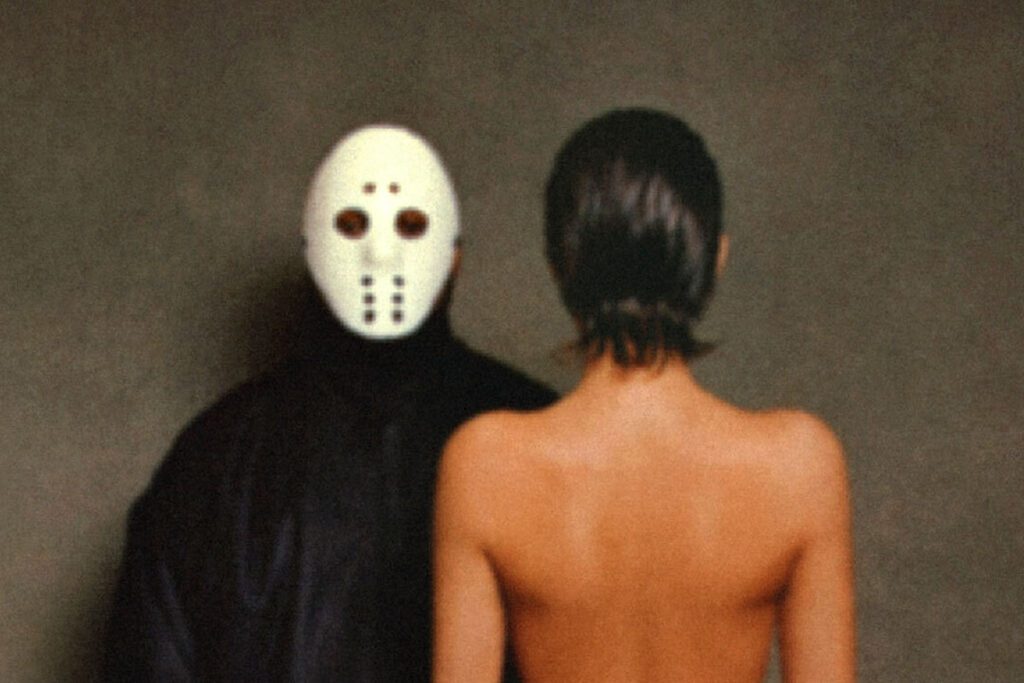Record Time is Paste’s monthly column that takes a glimpse into the wide array of new vinyl releases that are currently flooding record stores around the world. Rather than run down every fresh bit of wax in the marketplace, we’ll home in on special editions, reissues and unusual titles that come across our desk with an interest in discussing both the music and how it is pressed and presented. This month that includes a boxed set of R&B-gospel classics, a rare Japanese psych-rock release, and three LPs from a French pop icon.
The Staple Singers: Come Go With Me: The Stax Collection (Craft Recordings/Stax)
The Staple Singers, the gospel-soul family group from Chicago led by Roebuck “Pops” Staples and featuring the unimpeachable vocals of Mavis Staples, was already a going concern by the time they signed with Stax Records in the late ‘60s. But that move over to the Memphis label, and the input of producers Steve Cropper and Al Bell, helped take the ensemble to bigger stages and greater commercial heights. This long overdue collection brings together all the full-lengths that the Staples recorded for Stax; a run of albums that resulted in peak R&B/funk recordings like “Respect Yourself,” “I’ll Take You There,” “Heavy Makes You Happy,” and “If You’re Ready (Come Go With Me).” The group’s spiritual leanings were ever-present, but what took precedent was an Afrocentrism born from the waves of change being created by the Civil Rights Movement. Who better to bring messages like “Love Comes in All Colors” and “Give A Hand, Take A Hand,” than this church-bred group. This marvelous run of records sound brand new in these new all-analog pressings, with the earthy tang of the Muscle Shoals Rhythm Section and the Bar-Kays horn section ripping out of the speakers with hip-shaking fervor. It’s all capped off by a collection of stray singles and, most vitally, a recording of the band’s set at Wattstax, the day-long concert that brought the best of the label to celebrate the Black art and the Black community of Los Angeles. The Staple Singers’ performance is all fire and sweat, with Pops urging the Black Power movement to keep up the good fight and, on “I’ll Take You There,” Mavis testifying like the Holy Spirit had a hold of her body and soul. This is a milestone of American musical history, treated with the appropriate levels of respect and reverence.
Neneh Cherry: Raw Like Sushi: 30th Anniversary Edition (UMC/Virgin)
The names in the liner notes of this pop classic were the backbone of British beat music of the late ‘80s/early ‘90s: Cameron McVey, Nellee Hooper of Soul II Soul, Tim Simenon (aka Bomb The Bass), 3D & Mushroom of Massive Attack. All protons swirling around the white hot nucleus that was Neneh Cherry. It was her streetwise, sociopolitical vision that drove the production of Raw Like Sushi and her collaborators that helped give it electricity, calling on the forces of the London jazz community, bubbling hip-hop scene, and club dynamism. As great as the interview with Cherry in the liner notes for this multi-disc reissue is, the real historical context for Raw can be found in the many remixes included alongside a remastered version of the original LP. Dancefloor legends from David Morales to Arthur Baker sprinkle their particular pixie dust all over these already magical cuts. They can fly.
Jon Hassell & Farafina: Flash of the Spirit (tak:til)
Farafina, an ensemble from Burkina Faso that blended drums, dance, and voice, apparently needed some convincing when they were asked to participate in a 1987 recording session with trumpeter and Fourth World progenitor Jon Hassell. And who could blame them? With Westerners of all stripes have been siphoning and profiting off the sound and styles of African music for decades. They quickly learned that Hassell and his co-producers Brian Eno and Daniel Lanois were hardly leeches, but were instead looking to find some way into the trance-inducing world that Farafina created. In other words: everyone met each other halfway and what came out of their collaboration was a lucid dream where all parties involved know they are under a spell of their own devising. The synthesis of the percussion rumbles, mbira melodies and Hassell’s heavily-processed trumpet all wafts together, a dozen different primary colors and earth tones smoothly colliding to create an abstract objet d’art. This new edition, available for the first time since the album’s initial release in 1988, adds to the beautiful mystery of these sessions with smart, tasteful mastering that keeps the haze without sacrificing the ambience.
France Gall: Baby Pop/Poupée de Cire, Poupée du Son/1968 (Third Man)
Not to be outdone by fellow imprint Light in the Attic who produced some fantastic reissues of yé-yé icon Françoise Hardy in 2015, Jack White’s label is jumping into the French pop pond this year, re-releasing three LPs from Eurovision winning singer France Gall. This trio of records is a tour through Paris in the years leading up to the student protests that ripped through the city. As is standard procedure, Gall follows the musical lead of a variety of songwriters and arrangers throughout, including her father Robert Gall, Pierre Delanoë, “Love is Blue” composer André Popp and, of course, that old reprobate Serge Gainsbourg. The first two albums are fairly standard chanson material, cut through with Gainsbourg’s anxious and excitable tunes and France Gall’s utterly endearing vocal turns. Follow the thread right to 1968, an effort to tap into the Summer of Love aesthetics being popularized across the English Channel and the West Coast of the U.S. That mode inspired songwriters like Joe Dassin (son of film director Jules Dassin) and Frédéric Botton to add elements of country and Tin Pan Alley and for Gainsbourg to write one of his weirdest tunes with “Nefertiti” and an horn-drenched anti-LSD ode that’s almost a parody of bubblegum pop (“Teenie Weenie Boppie”). France Gall stays resolute throughout, following every twisting path and melismatic melody with oodles of charm.
White Heaven: Out (Black Editions)
An investment in a Black Editions release makes sound economic sense. The work that Steven Lowenthal has been undertaking to reissue the best in Japanese rock music is God tier stuff. Through his efforts, we can now enjoy the debut full-length from psychedelic trio White Heaven for far less than the $300+ that original pressings are going for on Discogs. And goodness knows, they might actually sound better than those pricier versions. At least that’s how my ears receive the remastering work of Soichiro Nakamura on Out, a glory box of ramble tamble rock sent soaring every time guitarist Michio Kurihara is let loose all over one of You Ishihara’s tunes. He sifts through the ‘60s and ‘70s American rock idiom to find the purest, shiniest nuggets, which he uses to add a hard, gilded edge to his solos. Ishihara got incredibly lucky hooking his wagon to Kurihara’s star. These six tunes are proof that he might have done just fine on his own, but with this guitar god in his corner, every moment takes on a meteoric charge.
Barbara Eden: Miss Barbara Eden (Real Gone)
The record shops of the world are littered with titles like this: easy cash-ins to further the profile of TV and film stars. And, by and large, they are forgettable or only appreciated with a healthy dose of ironic remove. The sole album recorded by this I Dream of Jeannie star puts a small lie to that notion. It’s not a missing masterpiece but there’s something undeniably appealing about both Eden’s voice—a finely shaded instrument in the vein of Connie Francis or Jeanne C. Riley—and the solid pop arrangements from Bill Justis. The song selection makes great use of both, avoiding stodgy standards in place of rarely recorded gems like Johnny Mercer’s “Dream” or the bubblegummy album closer “Bend It.” The appeal of this reissue isn’t difficult to grok either, what with its pink vinyl and 45 RPM mastering for increased fidelity. I’m not sure this will become a cornerstone of anyone’s record collection but it sure beats taking up space on your shelves with a Burt Reynolds or Barbi Benton LP.




